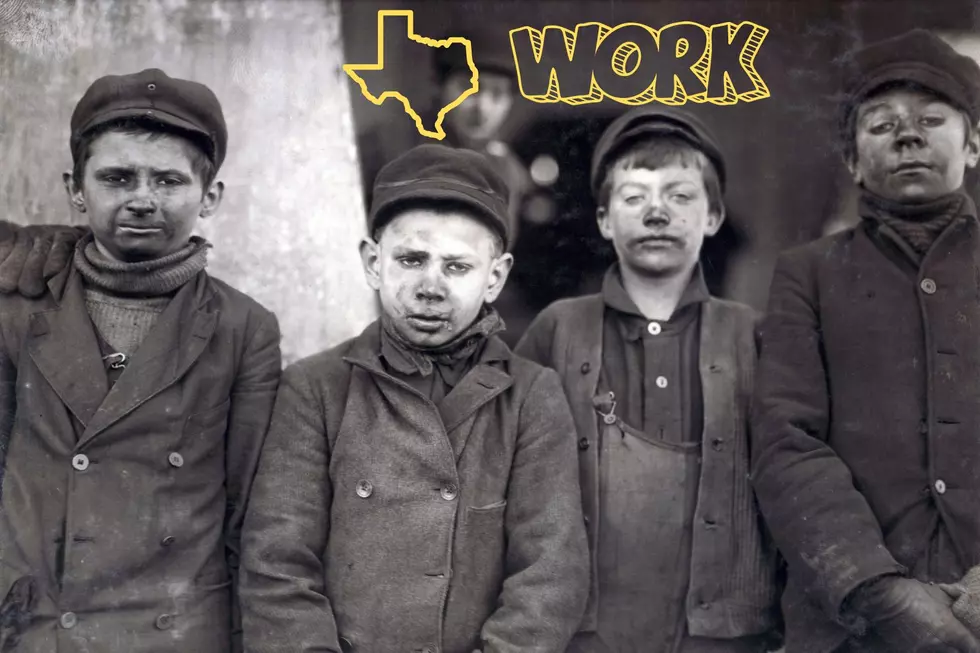
45 Years Ago: ABBA Moves Into Making Movies
There may be no band in the history of pop music that was as continually derided as they were immensely influential as Sweden's ABBA.
At the height of their fame, the critical establishment – particularly in the U.S. – loathed the band, with critic Robert Christgau famously writing in 1979, "We have met the enemy, and they are them." This sentiment seems more than just musically wrongheaded now; it also seems willfully obtuse about the direction of music itself. Better, perhaps, to have said, "We have met the future, and it is ABBA."
If you want a great piece of evidence for this, look no further than the band's often-overlooked but surprisingly entertaining ABBA: The Movie, which premiered around the world in December 1977.
The genesis of the film goes back to the band's approach to releasing singles. From the start, they made a music video (or a "promo clip" as they were then called) to accompany almost every song they released. As the band's website acknowledges, "major acts such as the Beatles and the Rolling Stones had already started making promo clips in the 1960s," but ABBA pumped them out with a regularity unmatched in the '70s, for a simple reason: They didn't like touring. This was because, as singer Agnetha Faltskog explains in an interview during the film, they felt it sapped their creativity and took away from time in the studio.
Watch the Trailer for 'ABBA: The Movie'
In a 2021 interview with The Guardian, keyboardist Benny Andersson estimated that during their 10-year career, ABBA played less than 100 shows.
But they were ambitious and needed a way to get their music out to the world, so they collaborated with a young Swedish film director named Lasse Hallstrom (who would eventually go on to direct movies like What's Eating Gilbert Grape and Chocolat) to make promo clips for their songs.
This proved successful enough that when the band reached world superstardom with their 1976 album, Arrival, and somewhat reluctantly embarked on a tour that included a month in Australia, they brought Hallstrom with them to make a movie.
Watch ABBA Perform 'Dancing Queen' From 'ABBA: The Movie'
ABBA: The Movie is partly a fictional story, partly a concert film and partly a compendium of music videos. It's centered on an Australian DJ named Ashley Wallace (played by Robert Hughes) assigned to get an interview with ABBA, who are coming to the country for their tour.
Because of a series of mishaps, however, Wallace keeps missing his interview times and is forced to follow the band across the country from one stop to the next. In the process, he also interviews real fans about their love for the band. This is all interspersed with concert footage, as well as recordings of press junkets with ABBA's four members - Faltskog, Andersson, Bjorn Ulvaeus and Anni-Frid Lyngstad - and shots of the Beatlemania-like scenes ABBA were inspiring at the time all over Australia.
In the end, after Wallace has overslept and missed his last chance to interview the band, he runs into them in an elevator. Hastily plugging his mic into his reel-to-reel tape recorder, he starts the interview, and the movie cuts to an extended video for the song "Eagle," from ABBA: The Album, which was released in 1977 to coincide with the film. The movie closes with Wallace sitting in his studio at the station, listening to the interview, and then cuts to another extended music video for the song "Thank You for the Music," also from ABBA: The Album.
Watch 'Thank You for the Music' From 'ABBA: The Movie'
The movie is fun, lighthearted and expertly made, thanks to the band's onstage presence and Hallstrom's moviemaking chops. But what's fascinating about it now is how it fits into the history of rock film and how it anticipates what would be ABBA's distinct place in the relationship between pop music and the stage and screen. In many ways, the movie participates in the tradition of rock 'n' roll film that runs from Michael Wadleigh's Woodstock (1970) through things like Martin Scorsese's The Last Waltz (1978) and Penelope Spheeris's The Decline of Western Civilization Parts 1 and II (1981 and 1988).
But while all of these movies to greater or lesser parts incorporate concert footage, attempts at cinema verite realism and at social commentary, ABBA: The Movie takes a far lighter approach.
In some ways, the movie it most anticipates is Rob Reiner's 1984 mockumentary This Is Spinal Tap. Although the latter is a parody, both films deftly mix narrative, interviews and performance footage to tell a story. But more importantly, ABBA: The Movie also uses its semi-fictional format to function as a promotional campaign for the band that was completed with the simultaneous release of ABBA: The Album.
This led the way not only for the great long-form music videos of the '80s, like Michael Jackson's "Thriller" (which was directed by another feature-film vet, John Landis) but also for the wave of promotional jukebox musicals that began in the late '90s. The band's initial foray into this arena was the 1994 Australian film Muriel's Wedding, which is about a woman obsessed with ABBA and features a number of their songs on its soundtrack. This was followed in 1999 by the stage play Mama Mia! Written by Catherine Johnson, the work tells a traditional stage-musical story of romance lost and won and is scored exclusively with ABBA songs. It was also initially financed by one of the band members, Anni-Frid Lyngstad.
Watch the 'Mama Mia' Trailer
The play's extraordinary success inspired a vast horde of theatrical and movie imitations, including shows about everyone from Fela Kuti to Alanis Morissette and seemingly everyone in between, not to mention a spate of biopics and musically oriented movies that have flooded theaters.
All of this is indebted to Mama Mia, which is in turn indebted to the band's habit of combining their music with visuals at every opportunity. This is not to say that ABBA invented the idea of combining music and video and weaving a story into it. Instead, they just did exactly what they did everywhere in their career: found slick, glossy ways to get their material out there, with such skill that it became an indelible and much-copied element of our world.
The Best Rock Movie From Every Year
More From KKTX FM










